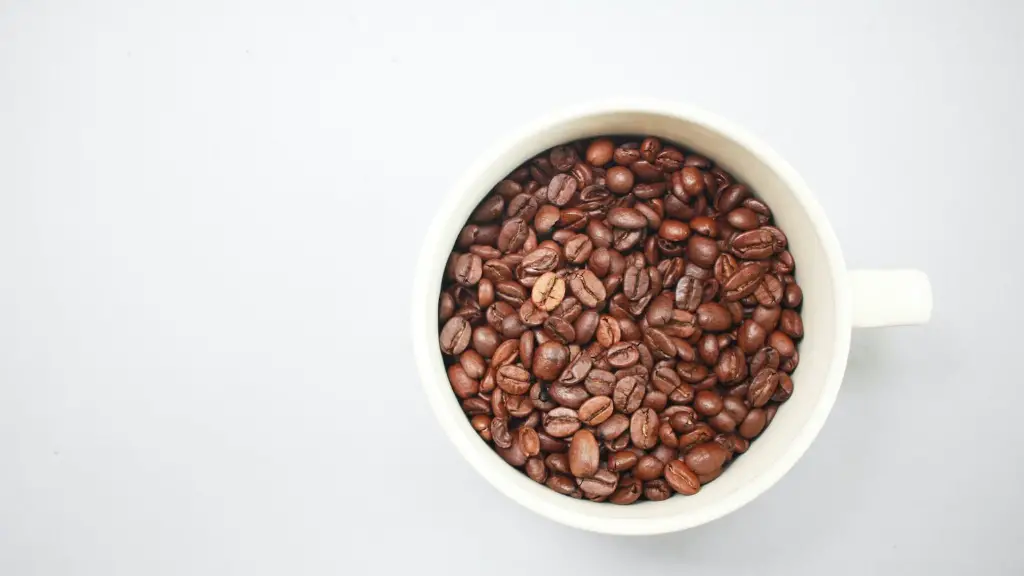Many people drink coffee every day to get their morning boost. But is it safe to drink coffee after taking Advil?
Advil or ibuprofen is used to reduce fever and treat pain or inflammation caused by health problems such as arthritis, menstrual cramps, and other minor aches and pains. It is an over the counter (OTC) medicine, which means it is available without a prescription. The active ingredient in Advil is ibuprofen, a nonsteroidal anti-inflammatory drug (NSAID). When taken in recommended doses, ibuprofen is usually safe. But if taken in high doses it can cause gastrointestinal complications, such as stomach upset, ulcers, or even bleeding.
Caffeine, a natural stimulant found in coffee, tea, and other beverages, can also cause stomach upset, heartburn, and other digestive problems. It can also interact with medications, including ibuprofen, and alter the effectiveness of both the medication and the caffeine. So the question remains: Is it safe to drink coffee after taking Advil?
According to experts, it is generally safe to drink coffee after taking Advil. In general, the two substances do not interact, although ibuprofen can increase the risk of side effects associated with caffeine. For example, caffeine can increase the risk of side effects associated with ibuprofen, such as stomach upset and bleeding.
It is important to remember that although the two substances do not interact, it is still possible to overdose on either or both. Ibuprofen can cause serious side effects, such as stomach ulcers, bleeding, and kidney damage, when taken in high doses. Caffeine can also cause serious side effects, such as anxiety, insomnia, irregular heartbeat, and restlessness, when consumed in high doses.
So it is important to be aware of how much caffeine and ibuprofen you are taking, and to talk to your healthcare provider if you are taking any medications or supplements. It is also important to remember that although it is generally safe to drink coffee after taking Advil, it is important to not drink too much coffee. It is best to stick to the recommended daily limit of no more than 400 milligrams of caffeine per day.
Caffeine and Advil Overdose
Caffeine and ibuprofen overdose can be dangerous for your health. A caffeine overdose can cause symptoms such as headaches, nausea, and vomiting, while an ibuprofen overdose can cause stomach irritation and ulcers. It is important to pay attention to the amount of caffeine and ibuprofen you are taking, and to talk to your doctor if you experience any symptoms of an overdose.
Additionally, it is important to remember that drinking coffee after taking Advil does not eliminate the risk of side effects. Taking too much of either can still cause side effects. Furthermore, combining caffeine and ibuprofen may increase the risk of stomach irritation and ulcers. Therefore, it is best to talk to your healthcare provider before drinking coffee after taking Advil.
Advil and caffeine interactions
It is important to be aware of how caffeine and ibuprofen can interact with each other. Taking ibuprofen and caffeine at the same time can decrease the effectiveness of both, or increase the risk of side effects. Additionally, combining ibuprofen and caffeine can increases the risk of stomach irritation and ulcers. Thus, it is important to talk to your healthcare provider before combining ibuprofen and caffeine.
Additionally, it is important to be aware of potential interactions between ibuprofen and other medications. Certain medications, such as blood thinners, can interact with ibuprofen and increase the risk of side effects. Therefore, it is important to talk to your doctor before taking ibuprofen with any other medications.
Potential side effects from Ibuprofen and caffeine
When taken in recommended doses, both ibuprofen and caffeine are generally safe. But it is important to be aware of their potential side effects. Side effects of ibuprofen can include stomach upset, ulcers, or even bleeding, while side effects of caffeine can include fatigue, dizziness, and headaches. Additionally, both ibuprofen and caffeine can increase the risk of stomach irritation and ulcers when combined.
Furthermore, drinking too much coffee can lead to dehydration and mental fatigue. Therefore, it is important to drink plenty of water when drinking coffee, and to avoid drinking coffee late in the day. Additionally, it is important to be aware of any potential interactions between ibuprofen and other medications before taking them together.
Taking care of yourself when taking ibuprofen and drinking coffee
It is important to take care of yourself when taking ibuprofen and drinking coffee. To minimize the risk of side effects from ibuprofen, it is important to only take the recommended dose and to talk to your healthcare provider before taking ibuprofen with other medications. Additionally, it is important to drink plenty of water when drinking coffee.
It is also important to be mindful of your caffeine intake, and to limit your intake to no more than 400 milligrams per day. Additionally, it is important to avoid drinking coffee late in the day, as this can lead to insomnia and mental fatigue. Taking these steps can help minimize the risk of side effects from ibuprofen and caffeine.
Alternatives to ibuprofen
If you are looking for an alternative to ibuprofen, there are several options available. Acetaminophen is a pain reliever that is available over the counter, and it has fewer side effects than ibuprofen. Natural remedies, such as ginger, turmeric, and cinnamon, can also be used to treat pain and inflammation without side effects. Additionally, there are several prescription medications available for treating pain and inflammation.
If you are looking for an alternative to caffeine, there are several options available. Herbal teas, such as chamomile and peppermint, are a great way to get an energy boost without the side effects of caffeine. Exercise can also be used to stimulate alertness, and it has other health benefits as well. Lastly, there are several natural foods, such as dark chocolate and nuts, that can also provide an energy boost without the side effects of caffeine.




